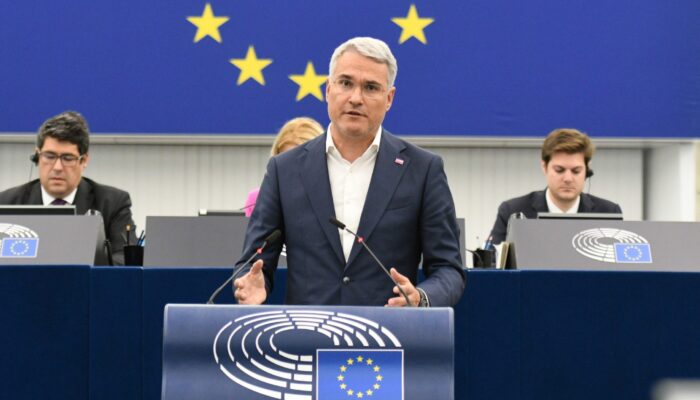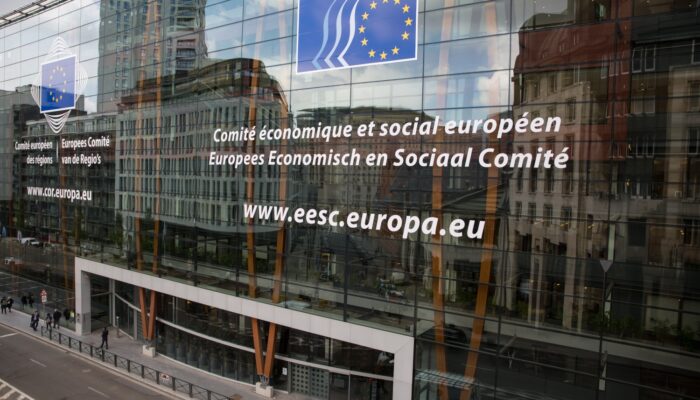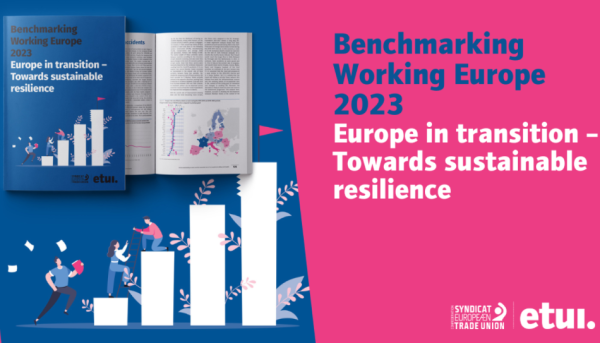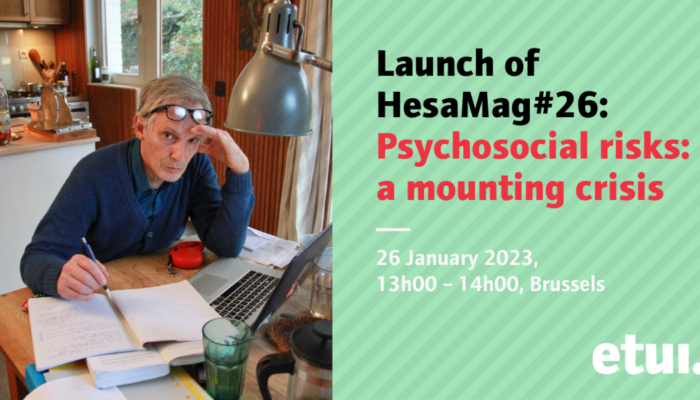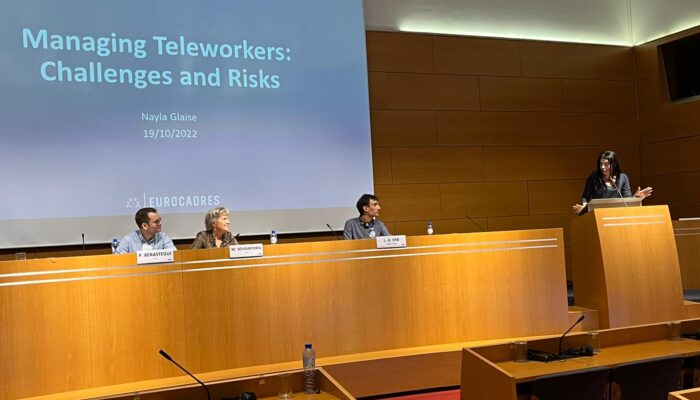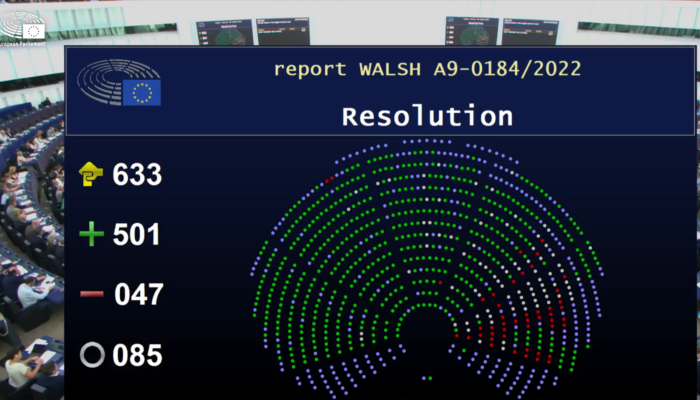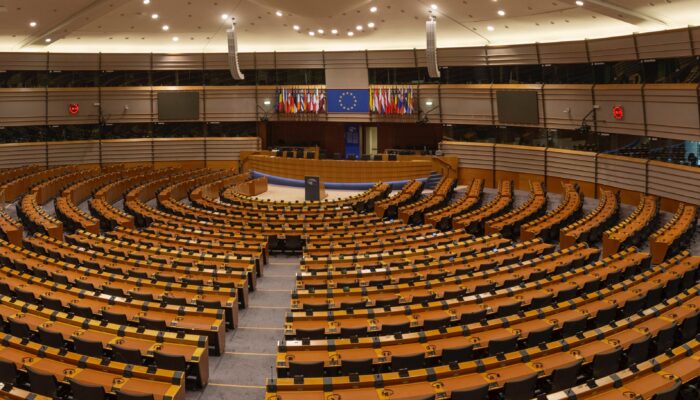ETUI report makes the case for European action
An eastern European perspective is detailed in a newly published report.

The European Trade Union Institute (ETUI) have outlined the necessity of a directive on work-related psychosocial risks in a newly published report, A case for an EU directive addressing work-related psychological risks: An eastern European perspective. Within the report’s findings, the need for the adoption of a new binding instrument at the EU level, developed with the involvement of the social partners, is seen as essential to set minimum standards on psychological risks.
With extensive experience in researching psychosocial risks and occupational health and safety, the ETUI’s call for European action is a significant development for the EndStress campaign. While the danger of work-related psychosocial risks is well known, the extent of the problem is only just becoming clear. The ETUI note that nearly 80% of establishments in the EU identify at least one psychosocial risk factor as being present in their workplace, while less than 40% of workplaces have action plans to prevent psychosocial risks at work across the EU. While some Member States have addressed this issue better than others, the reality is that millions of workers remain exposed to work-related psychosocial risks on a daily basis.
Action can be taken to alleviate this burden on workers, with the lack of EU-wide standards a point of concern. The situation in central and eastern European states is a prime example. Despite increasing work-related psychological risks and awareness of the issue, it is neither regulated by national legislation, nor adequately addressed at the enterprise level, with a lack of management of risk factors.
While the report highlights how a minority of Member States (notably Sweden, Denmark and Finland) have seen some success in addressing work-related psychosocial risks, for the majority of workers throughout Europe, the implementation of ‘soft’ policies has not proven to be effective. With existing legislation not explicitly include the terms ‘psychological risk’ or ‘work-related stress’, non-binding measures proving ineffective and the problem permeating workplaces in all Member States, the ETUI’s recommendation is clear: It is time for a directive on work-related psychosocial risks.
MORE ARTICLES
Momentum grows for mental health protection
PSR directive moves into political spotlight
“Set strong rules now!”
Commission under fire from MEPs to improve workers’ health.
Left in limbo yet again
Another initiative doomed to fail, as workers continue to be left unprotected from psychosocial risks.
EESC report supports EndStress campaign
Another institution calls for legal change.
Benchmarking Europe report shows severity of PSR crisis
Latest ETUI report paints a grim picture of PSR in Europe.
Increased exposure to psychosocial risks laid bare
/ News Increased exposure to psychosocial risks laid bare ETUI’s latest edition of HesaMag places worker’s exposure to psychosocial risks in the…
Legislative gaps highlighted through damning statistics
/ News Legislative gaps highlighted through damning statistics International Day of Decent Work, World Mental Health Day and the European Week for…
Global initiatives launched on worker’s mental health
/ News Global initiatives launched on worker’s mental health ILO/WHO and Australian unions begin initiatives on PSR. Worker’s mental health has been…
Commission action required to tackle psychosocial risks
/ News Commission action required to tackle psychosocial risks Yet again the European Parliament calls on the Commission to act. Today the…
EMPL committee calls for legislative action
MEPs ask for binding measures to protect workers’ health
